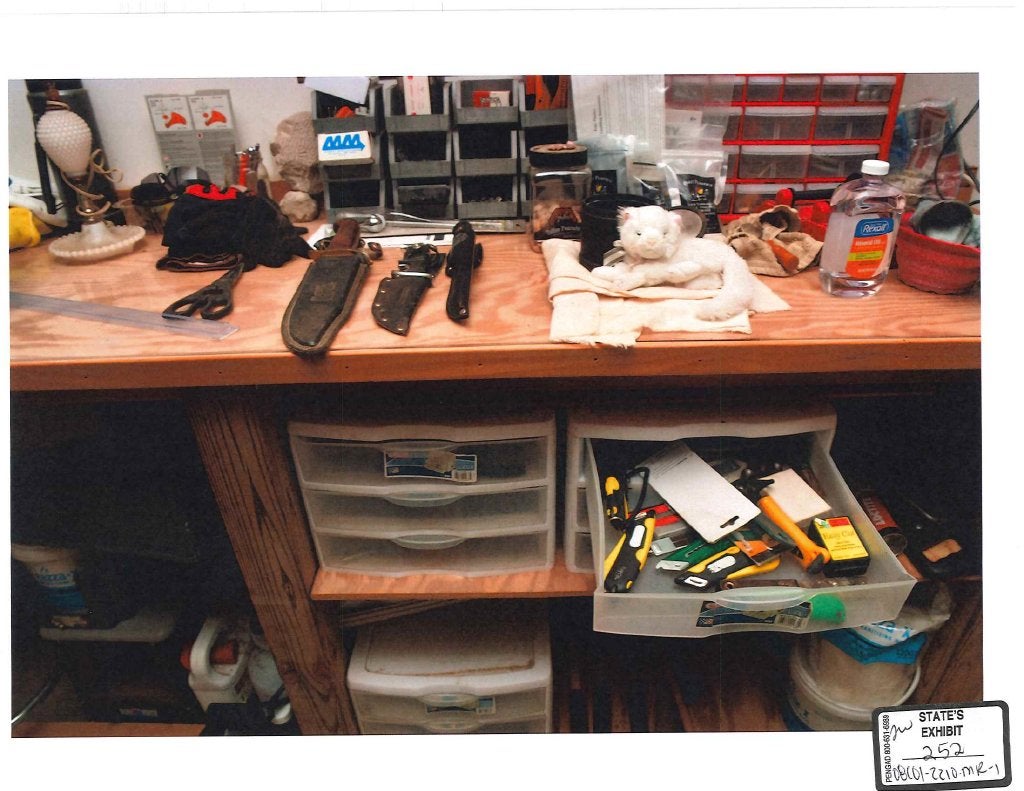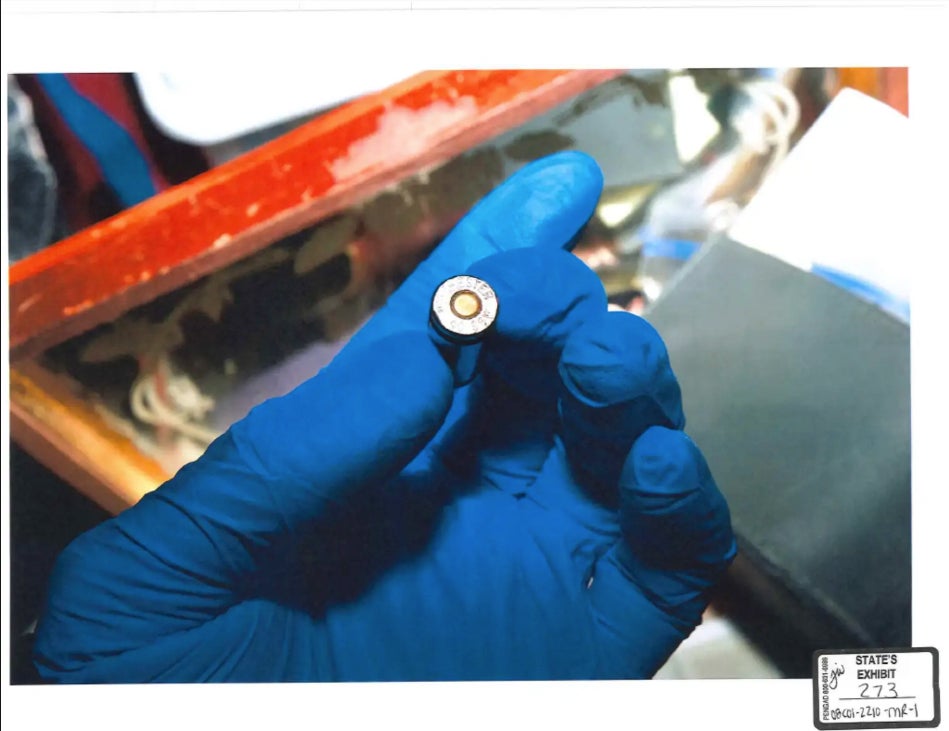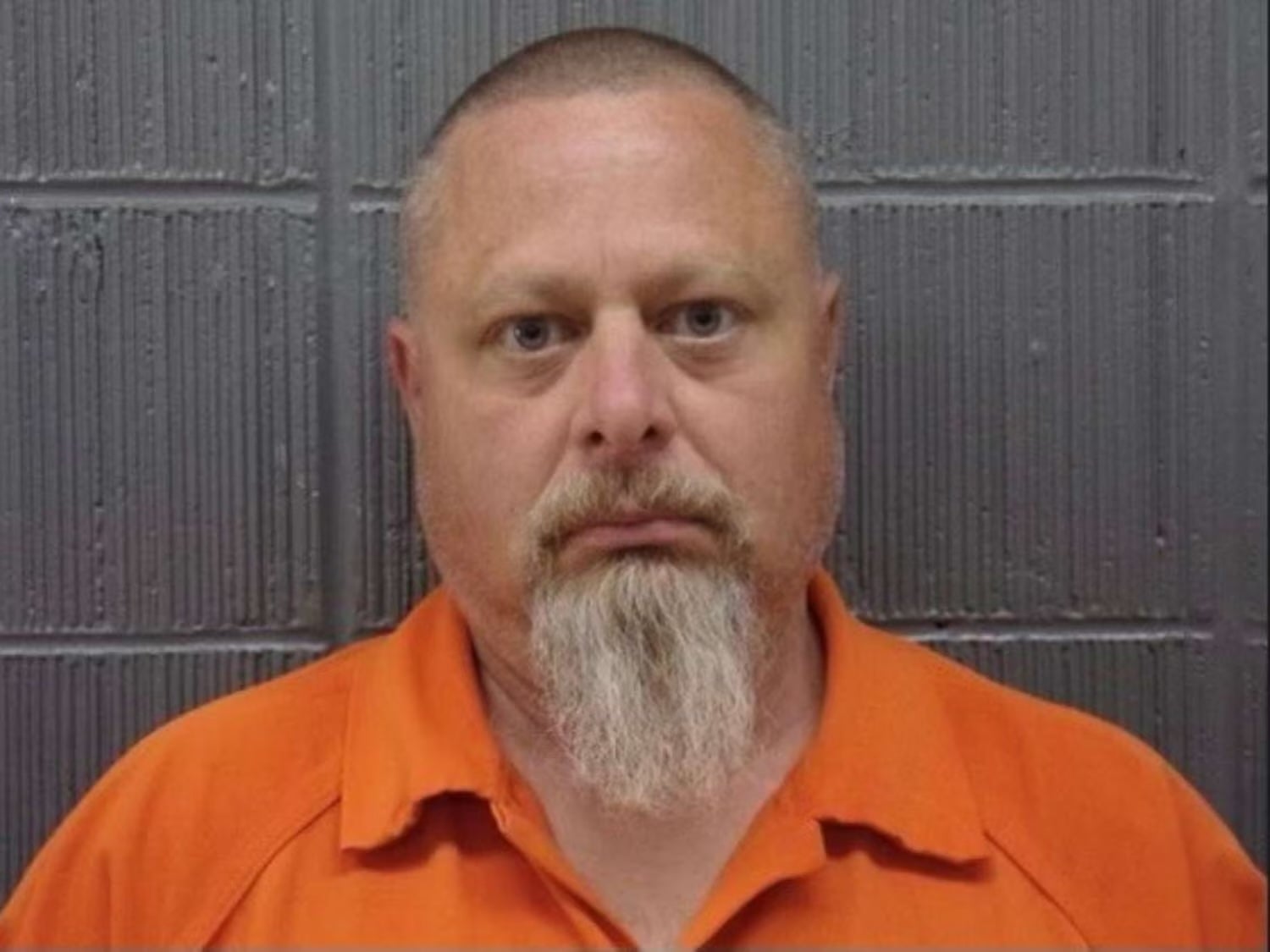Delphi murders: Pictures of gun, ‘magic’ bullet and slain girls’ phones among evidence released by prosecutors
In late 2024, Richard Allen was convicted and sentenced to 130 years in prison for the February 2017 murders of Abby Williams and Libby German in Delphi, Indiana
Months after Richard Allen was convicted in the 2017 Delphi murders of Abby Williams and Libby German, newly released trial exhibits reveal what investigators found inside the killer’s Indiana home.
Cameras were banned from the high-profile trial last year where the exhibits were shown as part of the state’s case against Allen in what Prosecutor Nicholas McLeland described as the “Bridge Guy starter kit.”
A fraction of the hundreds of exhibits were released to FOX59 on Monday, which included photos of what was found when police conducted a search warrant on Allen’s property on October 12, 2022.
Investigators seized box cutters, knives, electronics and a Sig Sauer P226 handgun – which used the same caliber bullet as the one found at the scene of the murder near the Monon High Bridge Trail, according to Melissa Oberg, a former Indiana State Police lab technician.

Oberg, who testified at the trial, had examined an “unspent bullet” that had been cycled through Allen’s gun. Allen, however, could not explain how a bullet from his gun ended up at the murder scene.
A .40 caliber round, which his defense team referred to as the “magic bullet,” was found in a “hope box” during the search of his home.
In his closing arguments at Allen’s trial, Carroll County Prosecutor Nicholas McLeland told jurors that Allen, armed with a gun, forced the girls off the hiking trail and had planned to rape them before a passing van made him change his plans and he cut their throats.

McLeland said Allen was the man seen following the teenagers across the Monon High Bridge in a grainy cellphone video German had recorded.
And he said Allen’s voice could be heard on that video telling the teens, “Down the hill” after they crossed the bridge.
Photos of Libby and Abby’s phones were also included in the exhibits released this week.
.png)
McLeland also noted that Allen had repeatedly confessed to the killings — in person, on the phone and in writing. In one of the recordings he replayed for the jury, Allen could be heard telling his wife, “I did it. I killed Abby and Libby.”
Allen’s defense argued that his confessions were unreliable because he was facing a severe mental health crisis while under the pressure and stress of being locked up in isolation, watched 24 hours a day and taunted by people incarcerated with him. A psychiatrist called by the defense testified that months in solitary confinement could make a person delirious and psychotic.

Defense attorney Bradley Rozzi said in his closing trial arguments that no witness explicitly identified Allen as the man seen on the hiking trail or the bridge the afternoon the girls went missing. He also said no fingerprint, DNA or forensic evidence links Allen to the murder scene.
In November, a jury found Allen guilty of two counts of murder and two counts of murder while committing or attempting to commit kidnapping.
Allen County Superior Court Judge Fran Gull then sentenced Allen on two of the four murder counts and imposed the maximum of 65 years for each count, to be served consecutively.

Earlier this year, Allen’s defense team filed a 24-page motion to correct errors as they called into question the timeline of the murder.
In March, Allen’s attorneys filed to appeal his conviction and sentence. He has maintained his innocence.